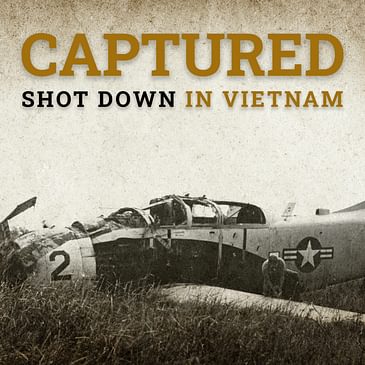The finale of our story brings us to December 1972, as President Richard Nixon's administration strives to bring an end to the stalemate in peace negotiations with the North Vietnamese.
In this episode, we'll hear how Operation Homecoming came to bring 591 POWs home in February of 1973, 8.5 long years after Everett's capture.
For more info and photos specific to this episode, visit www.capturedpodcast.com.
CAPTURED: Shot Down in Vietnam is a docuseries from the Richard Nixon Presidential Library and Foundation, produced by the team at Foundwave, and respectfully created in honor of Ross Perot, Sr.
If you're interested in learning more about Vietnam POWs, you can visit the new exhibit "CAPTURED" at the Nixon Library in Yorba Linda, CA.
This series is produced by Steph Weaver-Weinberg. Original music compositions, foley effects, and mastering from Jonathan Rock. Research, background, and history from Jason Schwartz. Executive production from Joe Lopez & the team at Richard Nixon Foundation and Kali Mason from Perot Family Collections. Co-executive production, interviewing, and hosting by Tyler Russell McCusker.
Learn more about your ad choices. Visit megaphone.fm/adchoices


